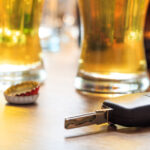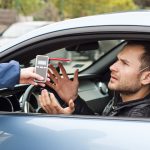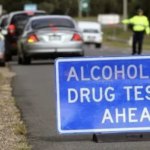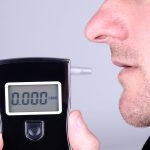High Range Drink Driving in NSW: The Law, Penalties and Defences
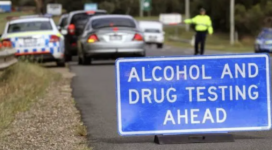
Police say they have charged dozens of with drink driving offences over the weekend during a two-day traffic blitz in Sydney’s south-west.
According to police, Operation Fume was established to target traffic offences on the M5 and Hume Highway between the suburbs of Beverley Hills and Menangle.
High visibility officers attached to the Traffic and Highway Patrol Command supported by general duties officers commenced the operation on Friday, 2 June 2023.
A total of 25,256 random breath tests were conducted which resulted in 79 people being charged with driving with a prescribed concentration of alcohol.
Eight of the drivers were charged with high range drink driving, thirty-seven with mid range, 29 with law range and five with special or novice range.
Police say they also conducted 672 roadside drug tests which resulted in 38 indications of drug driving. In these cases, the drivers are suspended from driving for 24 hours while their samples are sent off for testing by a laboratory.
The Offence of High Range Drink Driving in NSW
High range drink driving – which is also known as driving with a high range prescribed concentration of alcohol) is where a driver or motorcycle rider is detected with a blood alcohol concentration of at least 0.15 grams per 210 litres of breath or 100 millilitres of blood.
What are the Penalties for High Range Drink Driving?
If high-range drink driving is your first major traffic offence within the past 5 years, the maximum penalties are:
- Up to 18 months in prison,
- 9 month driver licence disqualification which can be reduced to 6 months, followed by:
- 24 months during which you must have an interlock device installed to your vehicle, and
- Fine of $3,300.
Alternatively, the court can ‘exempt’ you from the interlock requirement and impose maximum penalties of:
- Up to 18 months in prison,
- 3 year licence disqualification which can be reduced to 12 months, and
- Fine of $3,300.
If it is your second or more major traffic offence in the past 5 years the maximum penalties are:
- Up to 2 years in prison,
- 12 month licence disqualification which can be reduced to 9 months, followed by:
- 48 months during which you must have an interlock device installed to your vehicle, and
- Fine of $5,500.
Alternatively, the court can ‘exempt’ you from the interlock requirement and impose maximum penalties of:
- Up to 2 years in prison,
- 5 year licence disqualification which can be reduced to 2 years, and
- Fine of $5,500.
What Penalties Do the Courts Actually Impose?
The following are official sentencing statistics for high range drink driving in New South Wales.
They are published by the Judicial Commission of NSW.
Unfortunately, the Commission does not keep records of the length of disqualification periods imposed.
| Number of Cases | 15,447 |
| Section 10 Dismissal | 0% |
| Section 10 bond (now known as a conditional release order without conviction) | 2% |
| Section 10A (+ disqualification) | 0% |
| Fine (+ disqualification) | 41% |
| Section 9 bond (now a community correction order) | 29% |
| Community Service Order (now part of intensive correction orders) | 11% |
| Suspended Sentence (replaced by intensive correction orders) | 2% |
| Periodic Detention (no longer applicable) | 2% |
| Home Detention (now part of intensive correction orders) | 1% |
| Prison (+ disqualification) | 5% |
What are the Defences to High Range Drink Driving?
All general legal defences that apply to criminal cases can be relied upon when it comes to drink driving cases.
These defences include:
- Self-defence,
- Duress, and
- Necessity.
In the event you are able to raise evidence of a legal defence, the onus then shifts to the prosecution to prove beyond a reasonable doubt that the defence does not apply.
If it is unable to do so, you are entitled to an ‘acquittal;’; in other words, a verdict of not guilty.
As drink driving is what’s known as a ‘strict liability offence’ – which means the prosecution is not required to prove a particular state of mind such as intention, recklessness or negligence – the defence of ‘honest and reasonable mistake of fact’ is also available.
To establish this defence, you must convince the court on the balance of probabilities that you honestly believed you were not driving with a prescribed concentration of alcohol and that your belief was reasonable in all of the circumstances.
Going to Court for Drink Driving?
If you are going to court for a traffic offence, call Sydney Criminal Lawyers anytime on (02) 9261 8881 to arrange a free first conference with an experienced traffic lawyer who will advise you of your options and the best way forward, and fight for the optimal outcome.

